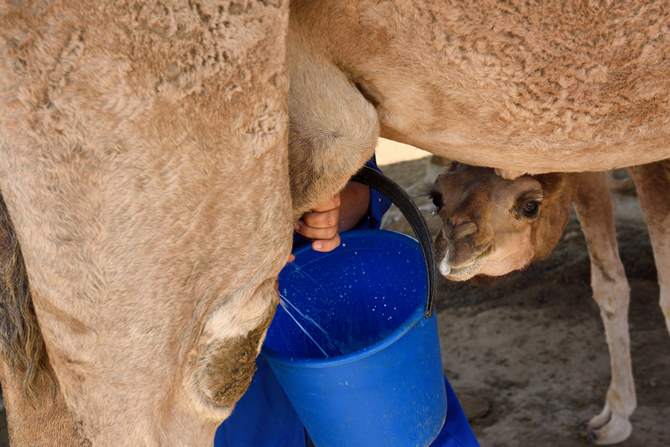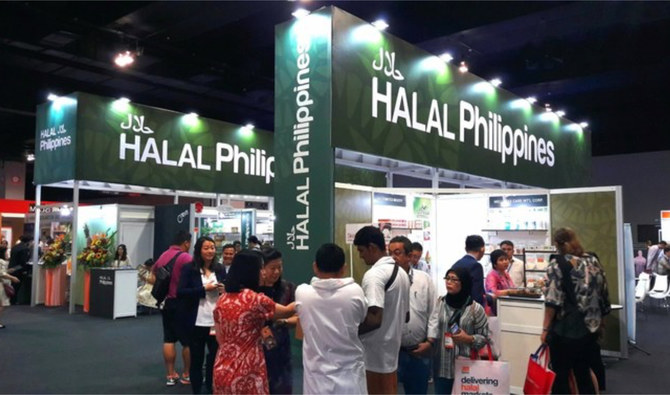1. OIC Chief Identifies Key Issues To Unlock Intra-Islamic Trade And Travel Potential
Prof. Ekmeleddin Ihsanoglu, Secretary General of the Organisation Of Islamic Cooperation (OIC), has outlined a number of issues that are restricting the growth of economic development and business/trade potential in the Islamic countries.
Speaking at the 27th session of the OIC’S Standing Committee for Economic and Commercial Cooperation (COMCEC), held between 17-20 October in Istanbul, he urged the ministers and government officials present to help remove the bottlenecks and clear the bureaucratic and legal hurdles to facilitate implementation of the various plans and resolutions.
COMCEC is responsible for promoting trade cooperation and economic integration among the Islamic countries. It is one of three permanent committees of the OIC formed in 1984 in line with a resolution taken at an Islamic summit, held in Holy Makkah, Saudi Arabia, in 1981. Turkey was chosen to host COMCEC’s headquarters and offices of its Secretariat General.
COMCEC held an historic Economic Summit in 2009, and the 26th COMCEC Session last year. In line with the OIC Ten Year Plan of Action, these meetings have adopted various “innovative strategies” to boost intra-OIC economic and commercial relations in areas such as trade, agriculture, rural development and food security, and poverty alleviation.
The OIC has sought “the constructive engagement of (OIC) Member States to deepen ownership and to ensure that our joint programmes and projects are implemented without delay. Dr Ihsanoglu said that the OIC has also expanded our network of coordination with the various OIC, regional and international organisations and institutions, in order to increase coordination and synergy so as to fast-track the implementation of our joint plans.”
Here is an edited text of the rest of his speech:
The OIC Trade Preferential System (TPS-OIC), which is composed of the Framework Agreement, a Protocol, and the Agreement of the Rules of Origin, has now become legally operational. However, efforts are now underway to ensure that Member States, which have so far ratified these instruments, should begin to take advantage of the tariff and non-tariff facilities to expand trade among their countries.
It is high time that this meeting should adopt a strong resolution to call for the resumption of the OIC Trade Negotiation Rounds. This will give effect to our numerous resolutions on trade expansion and trade facilitation. There is also the utmost need for this meeting to call on Member States, which have not signed or ratified these trade promoting instruments to do so in the interest of our collective desire for greater wealth creation and increased welfare of the peoples of our Member States.
Intra-OIC trade figures have continued to rise since 2005, notwithstanding the recent global economic downturn. This is due to the combined effect of our increased trade financing and trade promotion activities. The share of Intra-OIC Trade increased from 14.5 % in 2004 to 17.03% in 2010. This means, in monetary terms, that the value of Intra-OIC trade increased from US$ 205 billion in 2004 to US$ 539 billion in 2010. Similarly, the share of OIC Member States in world trade increased from 8.0 % in 2004 to 10.5 % in 2010. There is no doubt that if this trend continues, the target of attaining 20% of intra-OIC trade, which was set in the OIC Ten Year Programme of Action would be realized by the year 2015.
The twin objectives of achieving economic growth and poverty reduction could be realized through the implementation of the ongoing OIC strategies on agriculture, rural development and food security.
Despite the estimated number of 230 million persons in OIC Member States who are suffering from hunger and malnutrition, 90% of the world children with inadequate growth live in 36 of our Member States. Equally depressing is the fact that our Member States have to fund a combined food deficit of US$40 billion per year. This had indeed aggravated the Balance of Payments problems occasioned by the need to pay for the ever increasing oil and energy imports.
The mere fact that these alarming statistics can be addressed by mobilizing the huge opportunities within the OIC, therefore, calls for our concerted action in this regard. The vibrancy of OIC economy is evident in the increasing Gross Domestic Product of OIC Member States from a modest US$ 2 trillion in 2004 to US$ 8 trillion in 2010. OIC Member States now accounts for 11% of world GDP as against 5.36% in 2004.
In the same vein, 23 OIC Member States feature among the world top 20 producers of different agricultural commodities varying from cereals to tropical crops. The impressive arable land in OIC Member States, which stands at 21% of the world figure and the renewable water resources accounting for 14% of world figure are pointers to the fact that intra-OIC cooperation in agriculture is a credible driver of economic growth and social development in our countries.
The 6th Ministerial Conference on Food Security and Agriculture Development took place here in Istanbul, on 3-6 October 2011. The recommendations of the Conference are aimed at increasing our joint projects and programmes in the domain of agricultural capacity-building and productivity. It is also aimed at deepening regional partnership for the implementation of our respective national priorities on agriculture and rural development.
The recommendation for the elaboration of a comprehensive OIC Executive Framework on Agriculture, Rural development and Food Security has been passed to the COMCEC Task Force for further technical inputs. It is important that the Framework would serve as a platform to deepen ownership among OIC Member States and its numerous institutions so that we can overcome the existing constraint of the lack of inclusiveness in our cooperation framework.
This Framework should also identify critical areas for public and private partnerships in the development of strategic commodities and promotion of agricultural value-addition from farm-to-market. This approach is reflected in the outcome of both the Workshop on Agro-food and Agri-business, and the OIC Forum on Development of Agro-Food Industries held concurrently in Kampala, Uganda just last week.
The recommendation for a study on the creation of an OIC Agro-Industrial Association would promote the needed value-addition for enhanced agricultural output in OIC Member States. While commending the Islamic Chamber of Commerce and Industries (ICCI) for the successful holding of the Workshop, I am sure that the findings of the expert group would advance the role of the Private Sector in our cooperation strategies, while largely contributing to improving on the execution of OIC projects.
The issue of deepening ownership of OIC programmes has become very crucial as we seek to accelerate the implementation of our cooperation agenda. In this regard, some shortcomings exist as manifested in the lack of prompt responses by some of the OIC institutions to various requests, questionnaires, and circulars sent from the OIC General Secretariat.
For example, the fact that only three members responded to the two questionnaires on Tourism Facilitation; and Tourism Research and Training have not encouraged our respective focal points to complete their tasks in these areas. Similarly, only 15 Member States submitted the questionnaires on Strategies and Policies in the area of Agriculture, Rural development and Food Security. This latter situation has delayed the speedy execution of the mandate given by the sectoral Conference on Agriculture and Food Security.
I seek the personal intervention of Honorable Ministers to encourage their officials to submit these documents, which are necessary for proper coordination of intra-OIC actions in the relevant domains.
It is indeed the same spirit of deepening ownership that has informed the on-going reappraisal of the performance of the OIC Cotton Action Plan. Since its inception in 2007, only a few of the total number of 27 approved projects, amounting to US$373 million, has received the necessary funding to ensure its implementation. I wish to hereby urge our Heads of Delegations to support the on-going efforts of the General Secretariat and the Islamic Development Bank to secure additional funding sources by submitting detailed bankable projects through the appropriate national channels.
The General Secretariat has intensified its cooperation with the various regional organisations and international institutions with a view to mobilizing additional resources for its projects. For example, the OIC has received the support of the African Union and the New Partnership for Africa’s Development (NEPAD) on our proposal to create an alliance between its Dakar-Djibouti Transport Corridor and the OIC Dakar-Port Sudan Railway Project.
Actions towards mobilizing the US$8 billion component of the Special Programme for the Development of Africa (SPDA) have continued. At the same time, measures are underway to improve the effectiveness of the Programme by identifying and implementing cross-cutting and regional projects in its five priority domains, which are: agriculture and food security, water and sanitation, energy and transport infrastructure, education and youth employment, and health and combating communicable diseases.
Similarly, the proposed OIC Action Plan for Cooperation with Central Asia is aimed at implementing the OIC initiative of regional approach to economic cooperation among OIC Member-States. In this regard, our closer collaboration with the Economic Cooperation Organisation (ECO) is expected to speed up implementation of our economic cooperation projects. It is my sincere hope that this regional approach would go a long way to promote socio-economic renewal in these countries, as much as it would also serve as a sustainable means of socio-political harmony and conflict prevention.
I welcome the outcome of first meeting of the Executive Committee on the OIC Plan of Action for Central Asia, which was held on the sideline of this COMCEC Session. It is my sincere hope that the necessary partnerships would be developed to scale up the implementation of the many lofty objectives of the Plan.
Let me urge this audience to encourage their national development funds to assist in funding OIC projects. Our experiments under the Malaysia Capacity Building Programme in the three countries under the first pilot phase, as well as the declared assistance under the Kuwait Fund for Decent Living indicate that these provide actual sources of funding for our intra-OIC poverty reduction projects.
I also commend the increasing involvement of Private Sector establishments in our project elaboration and implementation mechanisms. I congratulate the President of IDB group on the recent approval, whereby the authorized capital stock of the International Islamic Corporation for Insurance of Investments and Export Credit (ICIEC) was increased from US$240 million to US$640 million. The role of the Islamic Corporation for the Development of the Private Sector (ICD) is also effective in our desire to mainstream the Private Sector in our cooperation framework.
Furthermore, the current support extended by the Turkish Union of Chambers and Commodity Exchanges (TOBB) on the proposed establishment of the Federation of Road Transport Associations in OIC Member States is commendable. Equally commendable is the biennial specialized trade fairs sponsored by the Turkish Independent Industrialists and Businessmen’s Association (MUSIAD).
Successful work (has been) carried out by the World Islamic Economic Forum for the enhancement of economic and trade cooperation among the OIC member states as well as non-OIC countries. The expansion of these activities, along with the activities of the ICCI, would generate the desired momentum for multi-sectoral activities within the OIC.
These potential funding sources would indeed to complement the substantial achievements, which we have so far recorded in our trade and development financing schemes. Accordingly, in 2010, the approvals by International Islamic Trade Finance Corporation (ITFC), one of the IDB Group members, on trade financing reached US$ 2.62 billion, which brings the cumulative trade finance approval of trade financing of IDB to US$ 36.96 billion.
I acknowledge the enormous contributions of the various OIC institutions and international organisations for their dedicated support, which has facilitated our demarches to scale up the implementation of the objectives of the OIC Ten Year Programme of Action. We are convinced that the partnerships, which we seek to consolidate in the relevant fields would serve the interests of our common Member States, much as we also seek to continue to support the global efforts for a more stable and prosperous world.



